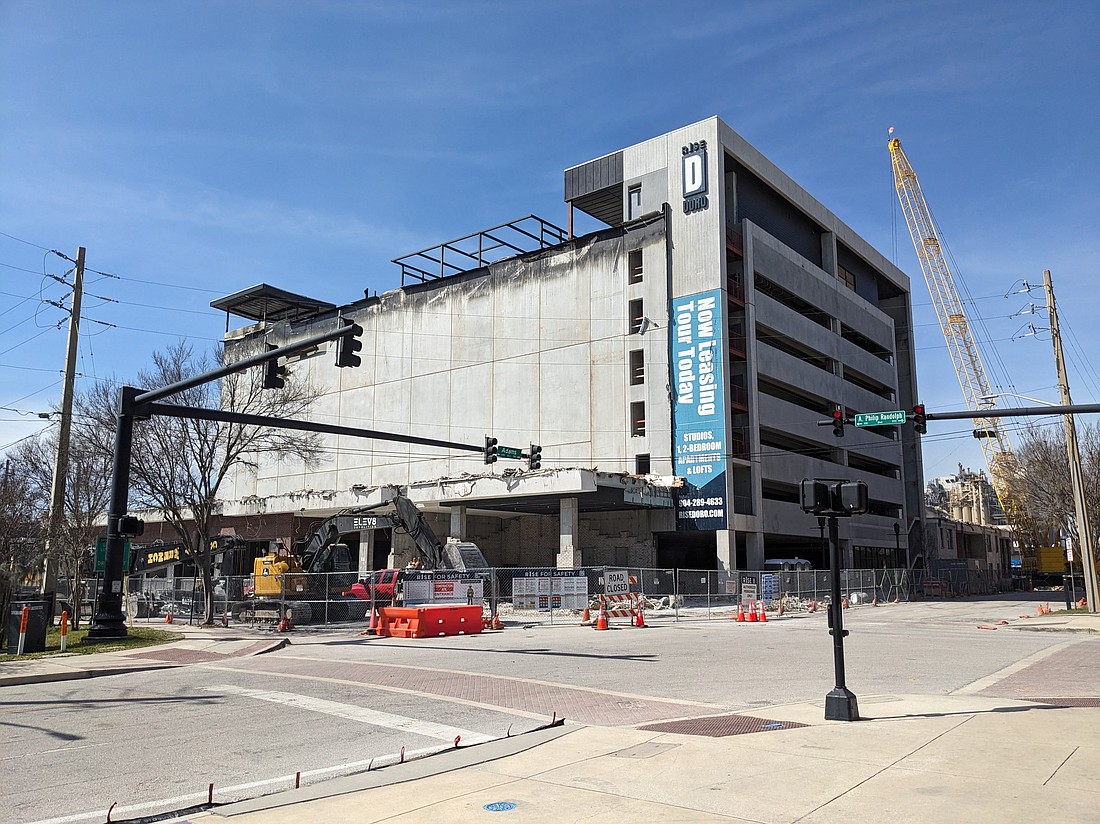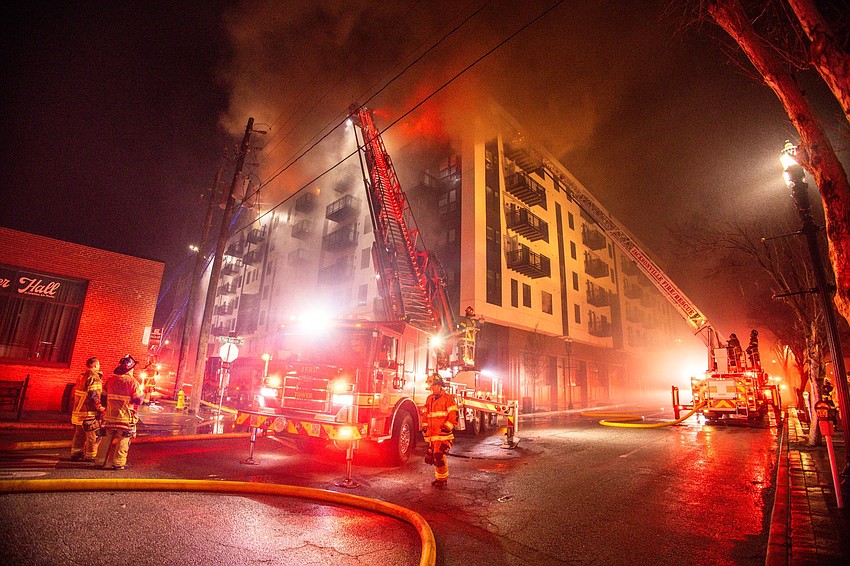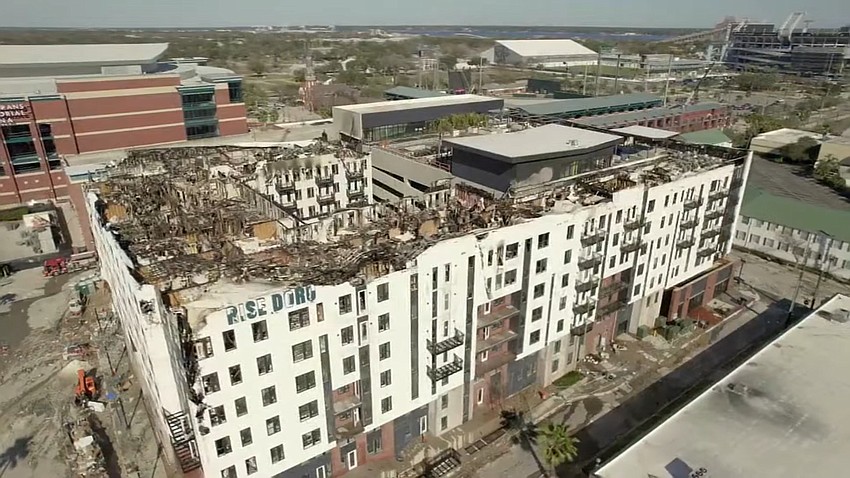
A $15.45 million incentives package to resurrect the fire-ravaged Rise Doro apartment building in Downtown Jacksonville is advancing toward a vote by the full City Council despite concern by Council auditors over one of the grants on the table.
The Council Neighborhoods, Community Services, Public Health and Safety Committee approved legislation containing the incentives, Ordinance 2024-0633, on Sept. 3 on a 7-0 vote.
Assuming the ordinance clears the Council Finance Committee, which is scheduled to take it up on Sept. 4, it will go to the full Council.
Council auditors flagged a proposed $1 million emergency rapid response grant for the project, which would be payable before construction is completed. That makes it different from most Downtown Investment Authority grants, which are due upon competition as protection against the city investing public funding in stalled projects.

The auditors report noted the emergency rapid response grant contained a clawback provision requiring the developer, Rise: A Real Estate Co., to repay it if the project were not completed. But the city would have to pursue action to recover the funds.
The proposed package includes a 20-year, 75% recapture enhanced value grant of $11.45 million and a $3 million workforce housing completion grant in addition to the emergency grant, which was offered in consideration of Rise promptly complying with a city order for the wood-construction portions of the building to be demolished after they were destroyed in a Jan. 28 fire. The city’s demolition order was aimed at protecting adjacent businesses from a collapse of the Doro building and allow them to reopen quickly.
The cause of the fire, which came days before move-ins were scheduled, has not been determined.
In 2020, the city approved a 15-year, 65% REV grant of $5.75 million for the project. A REV grant is a refund on ad valorem tax revenue generated by a new development. The grant for Rise would come through the DIA Multifamily Housing REV Grant program and would be payable upon completion of construction.

DIA CEO Lori Boyer said the new REV grant, which is nearly twice the size of the version approved four years ago, reflects increases in construction costs for the project.
Boyer said that in 2020, Rise had locked in construction costs at a pre-pandemic rate. Today’s costs have risen dramatically, she said. The new REV grant reflects costs of the concrete portions of the building, which remain standing, as the previous REV grant was not paid out due to the project not being completed.
Committee members raised questions about the workforce housing grant and Rise’s plans to designate 85 units for workforce housing for households earning less than 120% of the area median income.
Rise CEO Ryan Holmes said rent on those units would average $200 less than current market rates.
Steve Kelley, the DIA’s director of Downtown real estate and development, said that 120% cap would remain in place for the 30-year span of the proposed development agreement between Rise and the city.
The rebuilt Doro would include 247 residential units and 7,400 square feet of retail space. Plans also incorporate the remaining seven-story parking garage, which includes a rooftop swimming pool and fitness center.
The original project cost was $65 million. Today, the figure has risen to $79.1 million.